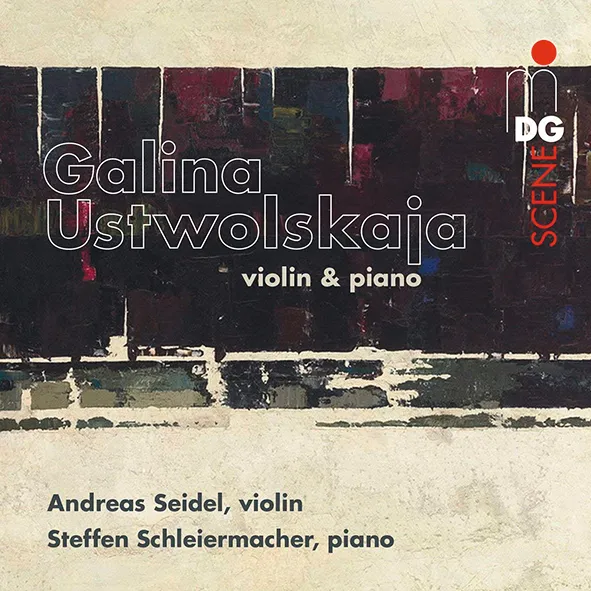
Ustvolskaya Violin Sonata; Piano Sonata No. 5; Duet for violin and piano Andreas Seidel (violin), Steffen Schleiermacher (piano) MDG MDG 613 2055 67:07 mins
Galina Ustvolskaya’s music is like the aural equivalent of granite. Harsh, austere, relentless, her work browbeats the listener into submission with its fierce strength of purpose. It’s not for nothing that she has often been referred to as ‘a hammer composer.’ And yet such an epithet doesn’t really do justice to her remarkable achievement. For despite the obsessive and fragmentary material from which she fashions her music, all three works on this warmly recorded disc really draw you in.
This is particularly the case with the Duet for Violin and Piano of 1964. It opens with a sequence of unremittingly harsh sonorities that builds up in intensity to a kind of danse macabre climax, before collapsing into a coda of strikingly calm and haunting beauty. In contrast, the earlier Violin Sonata, composed in 1952, one year before Stalin’s death, sounds numb and lifeless. A bleak obsessive dialogue between violin and piano which keeps on returning to a simple motif repeated eighty times by the violin is eerily projected by both performers. It eventually disintegrates into nothingness in the final bars where the violinist taps sporadic notes with the wooden part of the bow. In his engaging and not entirely uncritical booklet notes, pianist Steffen Schleiermacher aptly describes the most percussive sections of the compellingly performed Fifth Piano Sonata (1986) as ‘a bloodbath on the keys.’ There are also some moments of repose, but in Schleiermacher’s hands they sound fragile and without hope, the pianist convincingly linking them to the stultifying atmosphere that characterised the final years of the Soviet Union.
Erik Levi